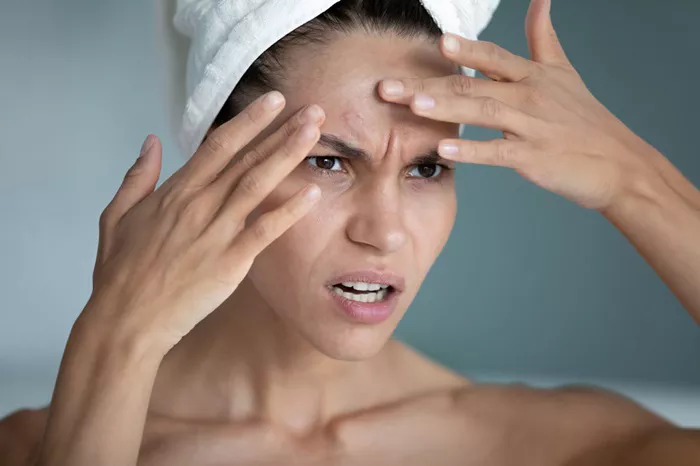Stress, often referred to as a silent saboteur, affects not only our mental health but also leaves visible marks on our skin. From breakouts and rashes to hair loss and premature aging, our skin frequently serves as a canvas that reflects the turmoil within. Recognizing this connection and discovering effective stress management techniques are essential for maintaining both mental well-being and a healthy complexion.
The Skin-Stress Connection
As the largest organ in the body, the skin is deeply connected to our emotional and physical health. When we experience stress, our bodies release cortisol, a hormone that can wreak havoc on the skin. Additionally, stress triggers the release of adrenaline, inflammatory markers, and neuropeptides, leading to various skin issues, including:
Acne: Stress increases oil production, which can clog pores and cause breakouts.
Psoriasis, Eczema, and Rosacea: Chronic stress can dysregulate the immune system, increasing inflammatory markers and causing flare-ups of these conditions.
Delayed Healing: Stress impairs the skin’s ability to repair itself, slowing down the healing process of wounds and increasing susceptibility to infections.
Hives: Acute stress can lead to hives or urticaria through the release of histamines and neuropeptides.
Accelerated Aging: Stress generates free radicals, unstable molecules that can damage skin cells, accelerating the aging process and resulting in wrinkles, loss of elasticity, and dull skin.
Nervous Behaviors: Stress can trigger excessive sweating and involuntary habits like scratching, picking, or rubbing, leading to breakouts, hyperpigmentation, scarring, or infections.
Hair Loss or Thinning: Telogen effluvium is a form of stress-induced hair loss that can result in noticeable thinning of hair.
Dark Circles and Puffiness Under Eyes: Stress-related sleep deprivation can cause dark circles and puffiness.
Managing Stress for Healthier Skin
Understanding the biological impacts of stress on the skin highlights the importance of integrating stress management into daily routines. Here are some effective methods:
Jacobson’s Deep Muscle Relaxation Technique: This technique lowers cortisol levels, minimizing the impact of stress-induced skin problems, promoting better sleep, reducing anxiety, and enhancing overall well-being.
1.Sit or lie down in a comfortable position in a quiet environment.
2.Take slow, deep breaths to help your body relax.
3.Tense each muscle group for about five seconds, then relax for 15-20 seconds, starting from your feet and moving upwards through your body.
4.Notice the difference in sensation between tension and relaxation.
5.After working through all muscle groups, take a few more deep breaths and enjoy the feeling of relaxation.
Mindfulness Meditation: Start with 3-5 minutes before bedtime and gradually increase to 20-30 minutes.
1.Lie down in a quiet space.
2.Close your eyes.
3.Inhale and exhale deeply, focusing on your breathing.
4.If a thought arises, let it go and refocus on your breath.
Regular Physical Activity: Activities such as yoga, tai chi, or any physical sport you enjoy can pump up endorphins and relieve stress. Various yoga asanas can also help reduce hair loss.
Consistent Skincare Regimen: A regular skincare routine tailored to your skin type supports the skin barrier and can help manage stress-related skin issues.
Lifestyle Changes: Drinking plenty of water, getting adequate sleep, and eating a balanced diet rich in antioxidants, omega-3 fatty acids, and vitamins improve skin health. Limiting alcohol and caffeine, which can worsen stress and affect sleep, is also beneficial. Avoid smoking, as it can deteriorate skin health and accelerate aging.
Expert Advice: If stress is overwhelming and leads to harmful behaviors, consider speaking to a mental health professional. For flare-ups of pre-existing skin conditions, seek help from a dermatologist.
The effects of stress on the skin are undeniable, but with mindful practices and positive lifestyle changes, we can combat these negative impacts. Taking time each day to relax and de-stress not only benefits mental health but also keeps your skin looking its best. Remember, a calm mind leads to a glowing complexion, so embrace relaxation and let your skin reflect your inner peace.
Related topics:
Understanding the Intricate World of Skin Microbiome
Embracing Marula Oil: Your Solution for Dry, Acne-Prone Skin
Children Using Adult Skincare Products Sparks Concern


